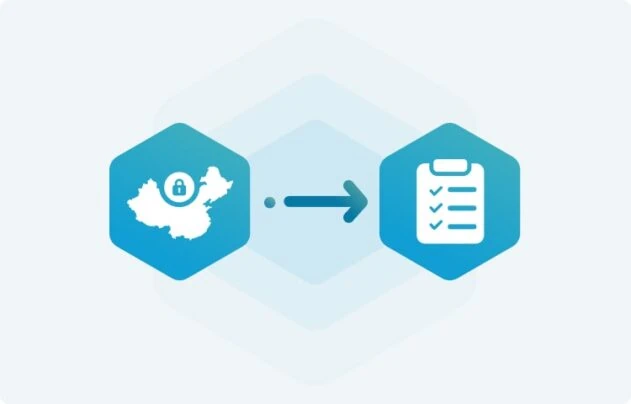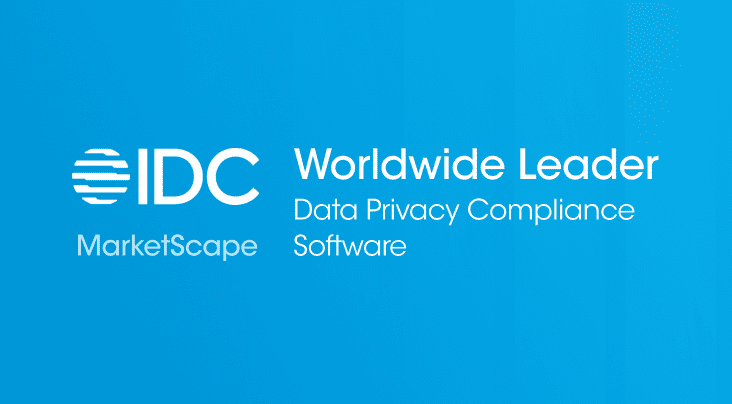Social Media Giant Fined a Whopping $1.3 Billion
On May 22, 2023, Ireland's Data Protection Commissioner (DPC) hit the social media behemoth Meta (previously Facebook) with an alarming $1.3 billion fine for actively violating the EU’s data privacy laws - particularly the cross-border data transfer provisions.
In a press release following the decision, the European Data Protection Board’s (EDPB) chair, Andrea Jelinek, said:
“The EDPB found that Meta IE’s [Ireland’s] infringement is very serious since it concerns transfers that are systematic, repetitive, and continuous. Facebook has millions of users in Europe, so the volume of personal data transferred is massive. The unprecedented fine is a strong signal to organizations that serious infringements have far-reaching consequences.”
Meta has a grace period of five months, within which the company must stop transferring data collected from Facebook users in Europe to the US. Further, the company must cease the unlawful processing of personal data, including storage, in the US within six months of the date of Ireland's Data Protection Commission’s (DPC) notification of the decision to Meta. Data transfers on Instagram and WhatsApp, two of Meta's other major platforms, are unaffected by the decision.
Meta announced that it would appeal the ruling and the fine as unjustified and unnecessary.
“We are appealing these decisions and will immediately seek a stay with the courts who can pause the implementation deadlines, given the harm that these orders would cause, including to the millions of people who use Facebook every day.”
Learn about Cross-Border Data Transfer Requirements Under Global Privacy Laws.
Reason for the Penalty
The DPC’s penalty is potentially one of the most significant regulatory enforcement actions under the GDPR in the last five years since the General Data Protection Regulation (GDPR) was enacted.
The decision highlighted that Meta infringed Article 46(1) of the GDPR by continuing to make cross-border data transfers to the US from the EU/EEA in violation of the European Court of Justice’s (CJEU) judgment in Data Protection Commissioner v Facebook Ireland Limited and Maximillian Schrems (Schrems II). In the Schrems II case, the CJEU invalidated the Privacy Shield framework for the transatlantic exchange of personal data, on the basis that it did not ensure an essentially equivalent level of protection (as offered under the EU law) for the personal data of EU subjects in the US.
The DPC specified that Meta Ireland conducted cross-border transfers on the basis of Standard Contractual Clauses (SCCs) adopted by the European Commission in 2021, supplemented by additional measures implemented by Meta itself. However, the DPC found that the foregoing measures “did not address the risks to the fundamental rights and freedoms of data subjects that were identified by the [CJEU] in its judgment.”
This landmark penalty emphasizes the magnitude of the offense and is an important reminder of the growing significance of protecting user data. Beyond financial consequences, the fine has reverberated throughout the digital industry and reignited conversations about privacy rights and the importance of regulatory compliance.
It's no secret that Meta has enormous sway over how online interactions, advertising strategies, and data-driven insights are developed. The distribution, targeting, and monetization of online material have been significantly shaped by its algorithms and platforms, which have drawn both praise and criticism from local and international bodies.
Concerning issues like privacy violations, data misuse, false information, and its effects on society dynamics have long considered the company’s practices, leading to increased regulatory scrutiny and public pressure to strengthen privacy protections, accountability, transparency and ethical standards.
Meta’s fine over cross-border transfer violations underscores the significant challenges companies increasingly encounter in achieving data compliance. Organizations worldwide require a comprehensive understanding of their sensitive and personal data, its location, authorized access, and the applicable laws and regulations. Insufficient insights and awareness make it challenging to effectively protect and manage data while complying with the complex array of privacy laws. Cross-border data transfers and data sovereignty restrictions add further complexity, as different jurisdictions have their own data protection regulations, as exemplified by Meta's record-setting fine.
This situation emphasizes the importance of automated systems that provide in-depth insights into sensitive data, including the surrounding context, such as applicable regulations, geographic location, and access permissions. By leveraging these automated insights, organizations can intelligently monitor and proactively detect potential violations, as manual processes often fall short when managing the vast amount of sensitive data companies handle.
You can assess your organization’s risks for transferring EU residents' data to countries by taking the EU’s Cross-Border Data Transfers Impact Assessment for free.
Overview of EU’s Data Privacy Regulations
The EU’s data protection landscape is dominated by the General Data Protection Regulation (GDPR), a comprehensive data protection regulation in effect since May 25, 2018. Several data privacy laws today have taken inspiration from the GDPR. The GDPR harmonizes and strengthens data protection laws across all EU member states, ensuring a high level of privacy and control over personal data. Key aspects of the GDPR include:
Extended Territorial Scope
The GDPR applies to organizations outside the EU, apart from those based within the EU, that process the personal data of EU residents to provide goods or services or monitor their behavior.
Consent and Lawful Data Processing
Before an organization collects and initiates the processing of an individual’s personal data, it is crucial to obtain explicit, informed, specific, and unambiguous consent from the data subject. Organizations must also demonstrate a legal basis for data processing, such as a contractual requirement, a legal requirement, a legitimate interest, etc.
Individual Rights
Individuals, commonly referred to as data subjects, have the right to access their data, rectify inaccuracies, erase data ("right to be forgotten"), restrict processing, data portability, and object to certain types of processing, including for direct marketing purposes.
Appointing a Data Protection Officer
Some organizations are required to designate a Data Protection Officer (DPO) to supervise data processing operations to ensure the same is in compliance with the GDPR, serve as a point of contact for individuals, and cooperate with supervisory authorities.
Data Breach Notifications
If a data breach poses a risk to an individual’s rights, organizations must notify the relevant regulatory/supervisory body within 72 hours of becoming aware of the breach, along with notifying the individuals impacted by the data breach if the breach poses a high risk to their rights.
Accountability and Privacy by Design (PbD)
Organizations must demonstrate accountability by complying with data protection laws and maintaining a record of data processing activities (RoPA), appointing a DPO, and carrying out data protection impact assessments (DPIAs) where necessary. Additionally, organizations must adopt the concept of privacy by design and default that builds privacy considerations into all of their systems, procedures and finished goods.
Cross-Border Data Transfers
The GDPR allows for the cross-border transfer of personal data to countries or international organizations that are not part of the European Economic Area (EEA) as long as certain safeguards, such as adequacy decisions, or appropriate protections, such as Standard Contractual Clauses (SCCs), Binding Corporate Rules (BCRs), or approved codes of conduct or certification schemes are in place to ensure an essentially equivalent level of data protection, or the organization is able to rely on one of the derogations for cross-border transfers, as specified in the GDPR, if there is no adequacy decision or no appropriate safeguards can be provided.
Learn about Cross-Border Data Transfer Requirements Under Global Privacy Laws.
Automating cross-border data transfer compliance enables organizations to implement automated workflows and processes, making tracking and monitoring data transfers, maintaining records, and generating necessary reports easier. Additionally, it provides real-time monitoring and auditing capabilities to proactively identify and address compliance issues. Organizations can modify their automated processes to ensure ongoing compliance, reducing the burden of manual adjustments and updates.
Lessons Organizations Can Learn to Avoid Regulatory Fines
In the fast-paced digital realm, radical technological developments and data privacy frameworks are continuously shaping the way individuals and organizations interact and conduct business. To ensure compliance with evolving data protection laws and protect individuals’ rights to privacy, regulatory bodies worldwide, particularly those in the European Union, are increasingly imposing higher penalties on organizations for any legally non-compliant practices.
Organizations can learn several important lessons from regulatory fines to prevent further sanctions and ensure compliance with data privacy laws.
1. Prioritize Data Privacy
Prioritize data protection across your entire organization by establishing strong data privacy policies, practices, and controls to ensure compliance with relevant laws. Integrate a privacy-focused philosophy into your organization's culture.
2. Recognize and Comply with Evolving Privacy Laws
Maintain up-to-date knowledge of applicable data privacy laws, such as the GDPR, and fully understand their obligations. Ensure your organization's operations align with the legal requirements by conducting frequent assessments and updating your processes as necessary.
3. Obtain Explicit Consent
Organizations should ensure that they diligently comply with the applicable consent frameworks - opt-in or opt-out (or a combination of both), and design their consent management processes accordingly. Organizations should also create systems for managing and storing consent choices.
4. Be Transparent and Communicate
Be transparent and honest with data subjects about how you collect, process, and share their data. Provide plain-language privacy notices that are easy to understand and are clear and accessible. Keep lines of communication open to respond to an individual’s questions and concerns about their privacy.
5. Implement Privacy by Design & Privacy by Default
Integrate privacy considerations from the very beginning into your data processes, systems, and products. Adopt a Privacy by Design and Privacy by Default strategy, incorporating security safeguards, data minimization practices, and privacy protections into the design and development of your products and services.
6. Adopt Security Measures
Protect personal data from misuse, illegal access, loss, destruction, and breaches by implementing strong data protection procedures, including access controls, encryption, regular security reviews, risk assessments such as Data Protection Impact Assessments (DPIAs), and employee training on best data security procedures. Take the EU Cross Border Data Transfers Impact Assessment for free.
7. Conduct Risk Assessments
Conduct risk assessments such as DPIAs to detect, analyze and mitigate risks related to your data processing activities. This is particularly important when introducing new technologies or when processing involves sensitive data of individuals. If any privacy risks are detected, take the necessary action to address them immediately. Conducting privacy assessments requires privacy teams to seek inputs from their governance and security teams. A single platform for privacy, governance and security helps teams collaborate and manage risks.
8. Maintain Data Retention and Disposal Policies
To ensure that personal data is not maintained for longer than is necessary, organizations must clearly define data retention and disposal policies as required under applicable federal or sectoral laws. In addition, organizations must implement procedures for the safe erasure or anonymization of data after it has served its purpose.
9. Regularly Audit and Monitor
Organizations should regularly audit and monitor their data privacy practices to discover any gaps or noncompliance areas and establish procedures for continual testing, monitoring, and evaluation of their data processing activities.
10. Collaborate with Data Protection Authorities
Maintain a cooperative connection with regulators and data protection authorities to always be in their good books and informed of any upcoming reforms that might impact your organization.
11. Automate Privacy Based on Sensitive Data
With the data growing exponentially and the regulatory landscape evolving so quickly, it’s nearly impossible for an organization to stay compliant with global privacy laws using manual approaches that use spreadsheets, surveys, and human inputs to manage privacy operations. Massive penalties like this can be devastating for businesses and highlight why automating privacy using sensitive and personal data as the ground source of truth for compliance is the top data governance priority for companies. Automating privacy operations can help companies to detect data transfers that are not compliant with international cross-border laws and suggest technical and legal remediations necessary to maintain compliance.
By implementing these lessons, organizations can avoid the risk of regulatory penalties and increase consumer and stakeholder confidence.
How Securiti Can Help
Securiti’s AI-Powered PrivacyOps platform, rated no. 1 in Forrester Wave for the Strong Current Offering, is packed with state-of-the-art automation modules that automate and orchestrate your privacy operations by detecting sensitive and personal data across structured and unstructured systems and then accurately linking it to an individual, enabling you to honor data privacy rights such as DSARs, consent requirements, cross-border data transfer requirements, issue breach notifications to impacted individuals, and more.
By automating privacy operations based on data as the ground truth, Securiti enables you to comply with global data protection regulations, reduce liability risk, and save on operational costs. Request a demo today and learn more about how Securiti can help your organization comply with cross-border data requirements, among several other requirements, and avoid non-compliance penalties.











